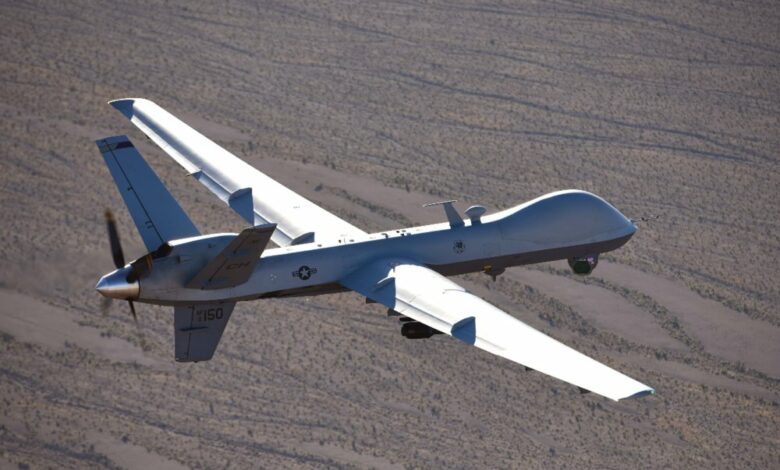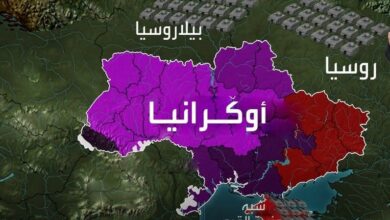U.S.-Gulf Vision 2040: Fully Integrated Gulf Security
منتدى الراي - William F. Wechsler - the National Interest

U.S.-Gulf Vision 2040: Fully Integrated Gulf Security
The circumstances may finally be right to achieve a longstanding objective: designing a system of integrated Gulf defenses to protect mutual national security interests.
Last year was a tumultuous one for the relationship between the United States and its key security partners in the Gulf. Each side was disappointed by the other, and the resulting disagreements spilled out into the public instead of being quietly resolved behind closed doors. Diplomatic differences have resonated politically in all capitals, further limiting the ability of each side to be seen as offering concessions to the other. It’s not difficult to imagine these long-enduring partnerships falling away completely in the coming years through neglect, if not intent. And yet, the circumstances may finally be right to achieve a longstanding objective—designing a system of integrated Gulf defenses that protects mutual national security interests on a sustainable basis. Leaders need to recognize this and take advantage of the opportunity.
The United States also has a vital interest in the global price of oil, for reasons that span security considerations (oil’s centrality to the functioning of our military), economic considerations (the impact of oil prices on growth and inflation), geopolitical considerations (our partners elsewhere who depend on oil sourced from the Gulf) and political considerations (the impact of gas prices at home and abroad). Despite campaign trail rhetoric about American “energy independence,” once in office, U.S. presidents in both parties discover, to their frustration, that they must care deeply about oil prices, especially when they get too high or too low.
It is also a stubborn fact that the market price of this global commodity remains disproportionately driven by actions taken in the Gulf, especially by Saudi Arabia. This reality is unlikely to change materially for decades to come, even under the most optimistic energy transition scenarios. Given this, the United States long ago decided that protecting the free flow of oil from the Gulf to locations determined by market demand—a historically atypical anti-mercantilist approach—would best protect that core interest. Today, again, the primary threat to this interest is Tehran, which openly threatens—and, indeed, has used—military force against both energy production facilities and the vessels that carry oil out of the Gulf. And, once more, this U.S. policy has aligned with the vital interests of its partners in the region.
The most important change in the regional threat assessment is Iran’s homegrown development of highly capable precision weaponry that can be used to strike targets at a distance with pinpoint accuracy. This is what allowed Tehran to strike Saudi energy infrastructure in 2019 and allowed its proxy to kill innocents at the Abu Dhabi airport in 2022. The inherent value of these weapons was clearly demonstrated when Russia requested Iranian assistance in Ukraine, a remarkable break from Russia’s proud tradition of military self-reliance and a complete reversal of the situation in Syria in 2015, when Russian air power came to the aid of Iranian-backed ground forces. Moreover, these weapons’ precision serves to lower the threshold for their use in the Gulf, as we have already witnessed, thus raising the risk of unintended escalation.
Given these dynamics, the door is finally open to build a multilateral, fully integrated air and missile defense system, and to achieve far greater multilateral cooperation within the established maritime security structures. U.S. military planners have long recognized the potential utility of such steps in protecting the above-mentioned national security interests, but the circumstances have not allowed them to proceed. Now they are.
Encouraging initial steps are already being taken at the most senior levels, but there is a very long way to go before the journey is anywhere close to complete. The U.S. Fifth Fleet launched Task Force 59 to integrate unmanned systems over a year ago, and secret talks reportedly took place last March among military leaders from Israel, the United States, and key Arab countries. Little is said publicly on the subject, but USCENTCOM commander Gen. Michael Kurilla has indicated that this subject is a priority, and Fifth Fleet commander Vice Adm. Brad Cooper has set a goal of having 100 unmanned surface vessels in the Gulf by this summer, only one-fifth of which will be from the United States. President Joe Biden privately raised the issue of integrated defenses during his trip to Israel and Saudi Arabia in July 2022, and reports have since been published about plans for a future Red Sands Integrated Experimentation Center and hopes for a proposed Middle East Air Defense Alliance. Moreover, the year ended with the Deterring Enemy Forces and Enabling National Defenses Act, driven by a bipartisan, bicameral group of lawmakers, which will provide the necessary funding for such an endeavor.
Of course, none of this progress has been lost on Tehran, which has issued public threats of a “decisive response to the nearest and most accessible targets” should the Gulf agree to “a joint defense pact in the region by the U.S. with [the] participation and hidden management of Zionists.” Of course, such threats are exactly why the United States and its partners should build a system of fully integrated defenses in the Gulf. Getting there will require four fundamental policy decisions.
The first and most critical policy decision is for the United States to commit to a future in which it remains intimately bound to Gulf security. In previous decades, such commitments could be made privately or remain within the purview of military and security professionals. Today, however, the single most important factor in the region, driving decisions by partners and adversaries alike, is the widespread perception of America’s withdrawal from the Gulf. Therefore, the above-mentioned quiet diplomacy on integrated air, missile, and maritime security is now insufficient. A public case needs to be made for a new security relationship between the United States and its Gulf partners, and it must be designed to receive bipartisan support.
Of course, American domestic politics makes doing so a tall order in the wake of an unsatisfying war in Iraq, a failed war in Afghanistan, the enduring resonance of the murder of Jamal Khashoggi, the involvement of Middle East leaders in U.S. domestic politics, and the continuing public sniping and policy differences between the U.S. and Gulf leaders. Unless these dynamics are reversed, they threaten to eventually turn the region’s expectation of a U.S. withdrawal into a self-fulfilling prophecy. But reversing this perception is nevertheless needed to protect U.S. interests. This cannot be accomplished if American presidents threaten to turn our partners into “pariahs” or openly question whether the United States should protect the free flow of energy.
Leaders in the Gulf also have fundamental policy decisions to make. Thus, the second critical policy decision to be made is a mirror of the first: Gulf leaders must openly commit to a future in which the United States remains their primary—and, in certain aspects, their sole—security partner. This would require them to cease their oft-repeated threats to turn to China or Russia to fill perceived security voids. In some cases, this decision should be relatively straightforward—most obviously for Bahrain, the longtime host of U.S. Fifth Fleet headquarters. For others, it remains an open question as to whether such a decision will be taken—especially for Saudi Arabia under its still relatively new leadership. Regional leaders will also need to recognize that such a commitment carries with it the need to ensure that American support remains bipartisan for decades to come. This is undercut every time decisions are made that are widely perceived to be advancing the interests of one American political party over another.
Third, Gulf leaders must make the decision to fully cooperate. If this was an easy task, it would have been accomplished long ago. Of course, the leaders of any state would naturally seek to avoid circumstances, if at all possible, in which they must rely on others to ensure their security. It is far preferable to jealously preserve complete freedom of action rather than allow one’s security to be dependent on any neighbor’s goodwill. Only after unilateral efforts to ensure security have proven inadequate do states typically consider cooperative mechanisms. And states that are in the midst of the heady process of building their own militaries or are led by individuals inexperienced in warfare are most prone to overestimate their own abilities to accomplish missions unilaterally, as we have seen in Yemen.
Compounding these generalities are the specific mistrusts and rivalries that have long kept the Gulf divided. There are many reasons why the Middle East doesn’t possess anything close to Europe’s interlocking matrix of multilateral cooperative mechanisms, and those realities won’t be blithely wished away. Only a few years ago, a much smaller subset of countries in the Gulf Cooperation Council went through years of an ill-conceived and largely ineffectual “Gulf Rift” that saw the United Arab Emirates (UAE) and Saudi Arabia break ties with Qatar. Given this history, maximalist approaches to security cooperation are doomed to fail. Instead, integrative efforts should initially focus only on a small subset of countries—Bahrain, Saudi Arabia, and the UAE—and only on a narrowly defined set of missions: air and maritime defenses.
And finally, a fourth fundamental policy decision must be made jointly by the United States and its Gulf partners. Working toward integrated defensive capabilities can be slow, dry, technocratic work that typically advances only incrementally and on generational timelines. If this work is left only to well-intentioned security experts, the risk remains high that perceptions will fall behind progress and reasons will be found to delay necessary additional program phases. When militaries look to work together, the typical pattern is first to work through the myriad of matters relating to questions of deconfliction; only after that is successful do the counties begin work to build cooperation. And then, once cooperative mechanisms have been established, governments can begin to consider questions of military integration. And finally, only after selected military capabilities have been integrated are governments interested in exploring the most sensitive subjects of building joint systems that are inherently interdependent.
But this project should begin, not end, with a clarion call for interdependence. Bahrain, Saudi Arabia, the UAE, and the United States should declare up front that this is the goal. They will be intentionally designing a future together in which they’re each practically incapable of achieving comprehensive air and maritime security in the Gulf without the others. The military systems being established won’t work for any if they don’t work for all. In doing so, the Gulf states will “lock in” the United States as their security partner, which should remove any remaining concerns about the long-term sustainability of the American regional presence.
The Gulf governments have all found it useful to issue vision documents that clearly outline the intended objectives of their policies. In 2008, both Manama and Abu Dhabi published Economic Vision 2030 plans, and Riyadh issued Saudi Vision 2030 in 2016. These three countries, together with the United States, should together issue a joint “Vision 2040 for Integrated Gulf Security,” laying out an ambitious path ahead toward a fully interdependent system of air and missile defenses and far greater multilateral cooperation within the established maritime security structures. With such a joint vision guiding the way, there will be no more questions about America’s withdrawal and Gulf hedging, and U.S. and partner vital interests will be increasingly secure—on a much more sustainable basis.
Will Wechsler is the senior director of the Atlantic Council’s Rafik Hariri Center and Middle East* Programs, and the former Deputy Assistant Secretary of Defense for Special Operations and Combatting Terrorism.
U.S.-Gulf Vision 2040: Fully Integrated Gulf Security | The National Interest


